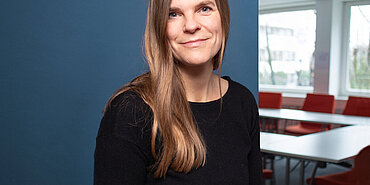150 people had come to the Japanese-German Center Berlin to witness the opening of the conference; the building’s assembly hall was full. Among them the participants of expert programmes that are currently ongoing in Germany; representatives of organisations that have been particularly active in the field for many years, such as German Sports Youth and the German Youth Hostel Association; and many alumni. The latter’s’ presence is proof that the experience of an exchange to Japan has a strong effect and even create a lasting bond with the programme. “These activities are not just bilateral expert exchanges; they form part of a genuine intergenerational dialogue,” in the words of IJAB Director Daniel Poli.
The cooperation between Germany and Japan is one of the oldest and most stable partnerships in the field of child and youth services, as expressed several times in the opening remarks and the subsequent interviews on stage. The speakers reminisced about the friendships that have grown over the last half-century, the community of values that has evolved, and the steadily developing list of issues that have been worked on. Youth exchanges between Germany and Japan have existed since the early 1950s. “After the war, people wanted to travel the world. They were curious,” said IJAB Chairman Rolf Witte who has been responsible for cooperation with Japan at the German Federation for Arts Education and Cultural Learning for many years. This had also helped to turn Germany into a cosmopolitan, open country.
Major cultural differences are part of the fascination
The conference and festive event were not all about looking back, however. In workshops, participants discussed current issues that will feature on the agenda of German-Japanese exchanges to come – such as how exchanges can be more sustainable, how young people’s mental health can be strengthened, and the ever important matter of intercultural dialogue.
The major cultural differences between the two countries in part drive participants’ fascination with the programme; however, they also colour the way the participants evaluate the experiences they have made. This was made clear in the presentations of the two exchange programmes for which the conference marks the end point. An IJAB-led Japanese delegation had spent two weeks learning about media literacy and how young people use and consume media; a second group, led by the Japanese-German Center Berlin, had travelled through Germany to learn about poverty. One word was repeatedly mentioned: autonomy, here in the sense of being able to live and learn independently – an objective for anyone helping to raise a child – but also in the sense of being able to make one’s own choices in the workplace. In many conversations, it became clear that “the other” had been sought and found; but mention was also made of the danger of stereotyping. Indeed, the relationship between Germany and Japan is not just a matter of individuality versus community, or hierarchical structures versus level playing fields. What is important is to have a conversation about these contrasts.
A toast to cooperation
After the work part was over, the participants felt they deserved to relax a little – during the festive evening event. Jana Borkamp, Head of Division at the Federal Youth Ministry, recalled the stability and longevity of German-Japanese exchanges, as well as its thematic diversity, which reflects the current challenges facing the child and youth services community. Tomoko Satomi from the Education Policy Bureau of Japan’s Youth Ministry referred to the generational shift in expert exchanges and highlighted the many commonalities shared by young people in Germany and Japan.
The band Tres Toni and their part-tradition, part-modern music provided a celebratory backdrop to the event, and the final discussion went even further to become somewhat emotional. Kazunari Fujiwara, head of delegation for IJAB’s most recent expert programme, recalled that the German-Japanese expert programmes had occasionally been quite controversial and were once even at risk of being closed down entirely. Thanks to a decisive intervention, they could be saved. “The most important part of any programme are the people behind it,“ said Christina Gerlach, Head of Department at IJAB. “They represent generations of expertise.” Miriam Wolters from the German Youth Hostel Association looked ahead to the future: “We need to leverage the opportunities of digitalisation for exchange programmes.”
To close, Jana Borkamp and Tomoko Satomi took to the stage with their glasses. Gifts were exchanged and a traditional toast proposed: “Kanpai!” The formal part thus over, the guests went on to share their experiences of cooperation between Germany and Japan on a more informal basis.




